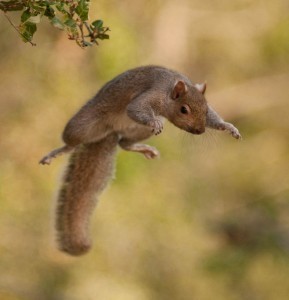Satya Robyn's Blog, page 8
November 25, 2013
After the flood, Llaugharne estuary by Mark Charlton
This painting is part of a virtual gallery to celebrate the launch of my new novel, Afterwards.
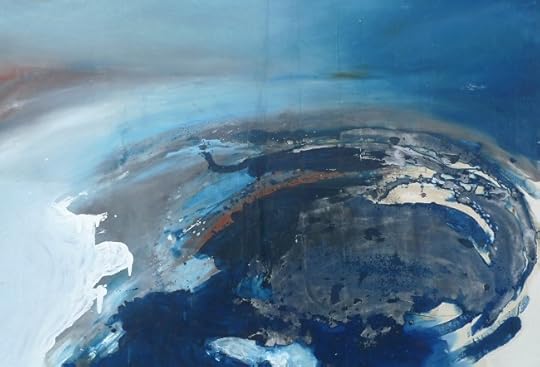
Mark Charlton is a life writer and painter based in Wales. His first book, Counting Steps – a journey through landscape and fatherhood, was published by Cinnamon Press in 2013 and his blog www.viewsfromthebikeshed.blogspot.com has revived widespread acclaim. He also plays the banjo and saxophone and is forever grateful to his tolerant neighbours!
A bonus: a piece of writing by Mark, called Afterwards.
By eleven on Christmas morning we were on the beach. The sky was cloudless, the sea a milky jade; frost on the pebbles. We walked to clear our heads from the night before.
Our neighbours had invited us round. Lovely people, honest friends; they drink too much, and so did we. In truth, neither of us had been that bad, but when Dylan woke at eight and said ‘Can I sleep a bit more,’ I’d thought, perfect child.
Then breakfast and presents; the mess of paper on the floor and me shoving it into plastic bags. The boys were on form too: grateful, attentive to their brother, nice presents for their mum – a typical family Christmas.
Then I remembered the night before.
Another neighbour had been there; farm labourer, a touch boisterous but no edge to him. Two years ago his wife hitched up with another bloke, leaving him with her debts as well as two pre-school sons – for good measure she also left her teenager daughter from a previous relationship.
An ordinary kid, the teenager was thrust into the role of surrogate mother to her little half brothers. And judging by what we saw on Christmas Eve, she does it naturally enough: calming, cuddling, explaining… ‘Father Christmas will come tomorrow,’ she said. ‘After me and your Dad come back from the milking.’ She scooped them up for bed.
‘You’re not really going milking tomorrow?’ I asked, when she returned.
And she looked at us with clear eyes and a soft smile. ‘It’s not that bad. We’ll be finished by five thirty and the boys will sleep through.’ She went on to explain that she does this every weekend and holidays, though not currently on school days as her exams are coming up. ‘It’ll be harder in the sixth form, but I don’t want to milk cows all my life.’
No more was said; I was lost for words.
As Jane and I walked the beach we talked about how different lives can be; how lucky our kids are, ourselves too. It was her calm acceptance that had struck us most, her willingness to do what was right; the responsibilities ahead of her years.
‘My Mum’s coming round tomorrow,’ she had said. ‘It’s good the boys see her, but I won’t stay while she’s in the house.’
There’s an island twenty miles off shore. It appeared like a dark circle, weirdly undercut – as if a ball had been stuck to the horizon. I realised the surface was miraging; the island reflecting its own shape in the water. A kestrel hovered above us, searching the tide-washed sand, oblivious to our presence.
I wanted to stay but we had to hurry: visitors coming, the turkey in the oven, the table to prepare.
As we turned to leave a tanker was rounding the headland, its stern fading in the mist.
—————————————————————————————————————————–
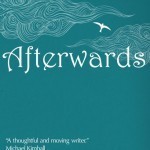
“I found the book most heart-warming and uplifting and carry the story with me long after I put the book down.” ~ H Hall
Afterwards is the new novel from Satya Robyn. After a serious car crash shatters April’s mundane life, she decides to run the London marathon. Will she reach the finishing line? Compelling and illuminating, it reminds us that it is never too late to begin over again.
After the Fall by Sean M. Madden
This image is part of a virtual gallery to celebrate the launch of my new novel, Afterwards.
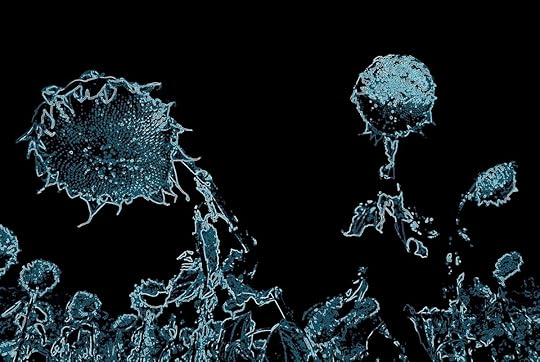
After the Fall
“An unforeseen tragedy, a crashing upon us of circumstances, can lead us into times of fresh growth and new beginnings. Like the shock of being birthed into this world, or the great upsurge of energy required of a seed to break through its casing and the sometimes still frozen earth to reach towards the warmth of the sun. Or a baby bird slowly pecking its way through an eggshell.
Pursuing a new way — a new life, a new creative venture — is seldom easy. We often require the energy of a thunderbolt — a lightning strike — to awaken us to new possibilities, to inspire a move beyond constraints which no longer serve, and to seek out new solutions or wholly new pursuits. This is the work of a lifetime, a lesson we must return to again and again.”
Sean M. Madden is a writer-educator, photographer and slow-traveling digital nomad. He’s also co-founder of Creative Thunder, helping creative individuals and small businesses to fire up their online presence and prowess. This month, he and Mufidah Kassalias are launching their new book, Burgos², a collection of their acclaimed Instagram photographs of Burgos, Spain.
—————————————————————————————————————————–

“I really loved this story of April, being catapulted into a fresh start.” ~ F. E. Clark
Afterwards is the new novel from Satya Robyn. After a serious car crash shatters April’s mundane life, she decides to run the London marathon. Will she reach the finishing line? Compelling and illuminating, it reminds us that it is never too late to begin over again.
Untitled by Mufidah Kassalias
This image is part of a virtual gallery to celebrate the launch of my new novel, Afterwards.
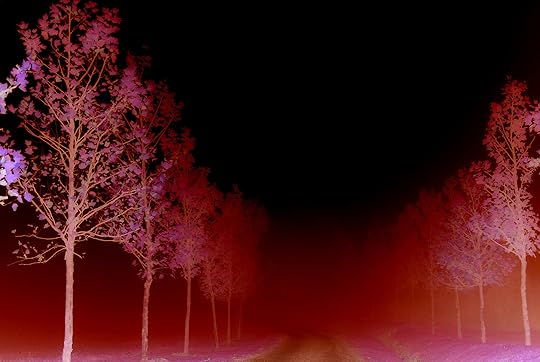
Mufidah Kassalias is a writer, photographer and slow-traveling digital nomad. She’s also co-founder of Creative Thunder, helping creative individuals and small businesses to fire up their online presence and prowess. This month, she and Sean M. Madden are launching their new book, Burgos², a collection of their acclaimed Instagram photographs of Burgos, Spain.
—————————————————————————————————————————–

“A thought provoking and inspiring read.” ~ Francesca
Afterwards is the new novel from Satya Robyn. After a serious car crash shatters April’s mundane life, she decides to run the London marathon. Will she reach the finishing line? Compelling and illuminating, it reminds us that it is never too late to begin over again.
October 24, 2013
I’m afraid of success – are you?
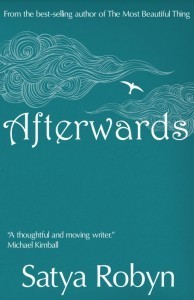 After selling mere hundreds of my first three novels, my last novel The Most Beautiful Thing has now been read by around 30 thousand people.
After selling mere hundreds of my first three novels, my last novel The Most Beautiful Thing has now been read by around 30 thousand people.
Four years later, and I now have a new novel out. And I am terrified. I am afraid of failure – this book might be a complete flop. But I think I am even more afraid of success. Here’s why:
When I get successful then people will be more likely to find out that I’m a complete fraud.
You know my novels, the ones that look like a proper author wrote them? I made them up inside my head! I don’t know what I’m talking about! I invent words when I feel like it! We publish the books ourselves! Any minute now, someone is going to reveal me as the clever faker I am.
The more successful we are, the more we expose our vulnerabilities – our secret fears and pockets of low self-esteem. I know that a few people will hate ‘Afterwards’. Actually, that feels fine. My pockets are getting smaller – I’m feeling quietly confident about this novel.
I am compulsive around praise & success & money.
When my last novel went up in the charts, my mood rose. When it went down, I felt deflated. Up, down. UP… down. UP! DOWN! The higher the ups, the more manic and excitable I was. It was exhausting for me and for my friends…
Of course, as the Buddha said, we should take both praise and blame with a big pinch of salt. The kind of buzz that praise gives us doesn’t last, and we just want more. I will focus instead on grounding myself in ordinary life – putting the geranium pots in the greenhouse for the winter, doing the washing up, spending time with friends. Feeling blessed when readers love my characters as much as I do. This is what is important – not those figures on a screen or in my bank account.
I am the kind of person who earns just-enough-money.
We like to know what kind of people we are. I’ve always been the kind of person who just about balances money coming in and money going out. If more and more comes in, this will be a big challenge to my identity.
We are always changing. I can let go of this old part of me and become ‘someone who owns more than enough money’. The truth is, I could do that right now, whether or not this book makes any money at all. These stories we have about ourselves are powerful, but they can and do shift.
If I get successful then I’ll have to look after myself and give up my hope that someone else will look after me.
This is an old story I have about my life. I always have to look after myself! It’s not fair! (it’s not true, of course.) If I’m not struggling any more, then I have to give up any hope of being rescued by someone else.
Of course, we still need people regardless of how successful or rich we are. Also, I am a grown up now and I can look after myself perfectly well (which includes asking for help when I need it).
What else am I afraid of? There are always more layers to the onion. Let’s hope that I get a chance to find out, as my book sells…
Are you afraid of success? Write down ‘I am afraid of success because…’ and then write a list of answers without thinking too much about what you’re writing. Let me know how you get on.
And the official launch of ‘Afterwards’ is late November, but I’ll let you in on a little secret… you can get your kindle copy right now (UK / US). Enjoy meeting April.
October 6, 2013
Falling in love all over again… from ‘ought’ to ‘want’
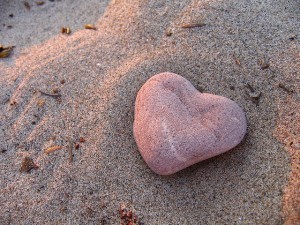 I’ve fallen in love all over again. With my lovely husband, of course. But also with writing small stones.
I’ve fallen in love all over again. With my lovely husband, of course. But also with writing small stones.
A small stone is a written record of a moment of paying proper attention. It is a deceptively simple and hugely powerful tool which connects me to what is around me, helping me to notice beauty, get more honest, and find gratitude. It is at the heart of our mindful writing e-courses.
I wrote one every day between 2005 and June this year. Then I stopped.
I stopped for two reasons.
I have been writing my fifth novel, ‘Afterwards’ for a long time. Or, more accurately, I’ve been NOT writing it. And so I stopped everything I could stop in order to focus on getting to the end of the story. (The book is now finished and will be coming out soon.)
I also stopped because my daily small stone practice had slowly and sneakily changed from something-I-wanted-to-do to something-I-ought-to-do.
I’m the person who invented small stones. I edit a blogzine which publishes small stones. We’ve edited two books of small stones. We run a Mindful Writing Challenge every January, and a Mindful Writing Day every November the 1st. Therefore, I MUST write small stones.
Sometimes it is good to do things because we ought to do them. Brushing our teeth, for example, or feeding our children.
The problem with ‘ought’ is that sometimes we end up doing things because they are expected, or because we think they are expected. We do things FOR other people. This puts people into the awkward position of feeling they ought to be grateful for the things we’ve done for them, or we might get resentful. All that ought.
Getting tangled in ‘ought’ also means we forget our original reasons for wanting to do the thing.
Ideally, we should have reasons for doing everything we do that are sufficient in and of themselves. If we find ourselves thinking ‘ought’, we should go back to our original reasons for doing what we’re doing, and release other people from any obligation. If they appreciate what we’re doing, great. But if not, that’s fine too.
I’d got caught up in thinking that the world expected me to write small stones, that it would be disappointed if I stopped. For the most part, it wasn’t upset. It didn’t even notice.
I noticed, though. I missed the discipline of jotting down a few sentences a day and playing with the words. I missed the opportunity to slow down and pause, in amongst my compulsive busyness. I missed letting go of myself and immersing myself instead in that tawny pink hydrangea flower, the quiet swoosh of this car as it passes, the cool plastic of the keyboard under my fingertips.
Welcome home to writing small stones, Satya. It doesn’t matter if anyone reads them or not. It doesn’t matter if other people are inspired by them or not. It’ll be lovely if they do, if they are, but it’s not necessary.
What matters is the writing.
*
Heart Rock by Melina
September 9, 2013
Neglecting what’s important & a name for my new novel
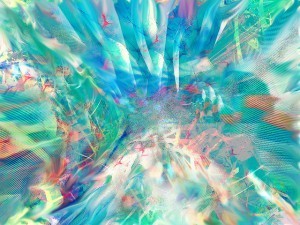 Put your ear down close to your soul and listen hard. ~ Anne Sexton
Put your ear down close to your soul and listen hard. ~ Anne Sexton
The noveI I am currently writing has been a struggle.
BOY has it been a struggle. I don’t exactly know why.
I don’t know if the success of the novel before it, The Most Beautiful Thing, has created a crushing weight of expectation in me. I don’t know if it’s been the changes in my personal life (new husband, town, house, religion, name). I don’t know if I’ve just got into bad habits.
I do know that taking three weeks away from the internet has been very good for it. I have finished my second and third drafts and am part-way through the fourth. It will be ready before the end of the year. It WILL. And thanks to my mum it has a title now too: Afterwards. I can’t wait for you to meet April.
Looking back, I wonder if I could have handled this period of not-writing more skilfully. Was there something different I could have done?
I think I downplayed how important it was for me to make time to write. I think I pretended that I was happy to write the book more slowly, or that maybe I was happy to not be a writer at all for a while.
It wasn’t okay, and I wasn’t okay. It is only in retrospect that I can see how much it pained me to not make progress with my writing for such a long time.
I will try and listen more closely to my soul in the future. I will try to take myself more seriously when I have a niggling doubt or a persistent urge. Whether or not it is convenient. Whether or not it is comfortable.
I neglected April, and I neglected the parts of myself that wanted something different. I am sorry. I will make things right by continuing to write.
Put your ear down close to your own soul and listen. What is it saying?
*
Photo by tomt6788
July 15, 2013
Why the most important thing is often the most difficult thing
Getting my writing done is the most important thing in my day.
Getting my writing done is the most difficult thing in my day.
I sit down to write my novel. I distract myself on Twitter. I stare out of the window. I think about what a terrible writer I am and how much easier it would be if I gave the whole thing up. I try Facebook. I stroke the cats. I write a sentence or two. I go downstairs and make myself a cup of earl grey.
Creative projects are difficult, because we are working on the edge of what we know, and what-we-don’t-know is a terrifying abyss. They are difficult because they can take years of excruciating effort and they often don’t make us any money and there are no guarantees that we will come up with anything worth being-in-the-world. They are difficult because the world (and us, and the people we love) might feel uncomfortable or upset or annoyed about the things we need to say.
Creative projects are important, because they take us into new territory. Because they say the things that nobody else dares to say. Because they bring people joy and insight and comfort and help them release their sadness and anger and change them forever. They are important because they move us from the death of the known to the life of the new.
Being a person is a creative project we are all in the middle of. We are always remaking ourselves, reinventing ourselves. Over the past couple of weeks I’ve been finding out about a limit I didn’t know I had, which I’m sure has coloured many of my interacts for most of my life. As I discover these new parts of myself, they shift and transmute. Hopefully, I can live a little more easily with them, and this makes things easier for other people too. I change.
We don’t like to not know who-we-are. We resist change like billy-o. The gap between knowing-who-we-were and knowing-who-we-are-now can be terrifying – existential chaos, a black hole, death. Often we cling with a great deal of desperation to the old.
It’s okay. We can trust ourselves, and the universe, as it unfolds. It might get hairy for a while, and it might get better and then really hairy again. And. If we listen out for support and know that we are held by a greater love, by something that is bigger than us, we will get through. It’s okay even when we don’t get through.
Keep writing. Keep remaking yourself. Keep leaping into the unknown. It’s important.
*
Join us during August for some gentle leaping with our Mindful Moodle. If you register before this Sunday the 21st of July, it’ll be £39 / $59 instead of £59 / $99 for a Creative Boost, 31 daily inspirational emails and a private group. Spaces limited.
‘Serious squirrel’ by Navicore
July 1, 2013
What do you place at the heart of your life?
 Satya writes: After getting into good habits on retreat in Eleusis in France, we started our day today by spending some time in front of our golden Buddha.
Satya writes: After getting into good habits on retreat in Eleusis in France, we started our day today by spending some time in front of our golden Buddha.
Why do I start my day in this way?
There are lots of things we can place at the heart of our lives. Common favourites for most of us are financial security, popularity, physical security, our image and how successful we are.
When I put money at the centre, and spend hours plotting how I can pay the tax bill looming in January, I am working from fear. When I put fame at the centre, and check my rankings on Amazon too often, I am coming from an insecure place and always find myself greedy for more.
All of these efforts are misguided. They are an attempt to prop my ego up, and to deny the reality of existence, which is that everything changes all of the time. There is no ultimate security. We can’t control how much money comes in or how famous we are. We can make choices and do our best, but what comes back is much less in our direct control than we’d like to think.
When I start the day in front of our shrine, when I say the nembutsu, I am placing something at the centre that doesn’t rely on me getting-what-I want for everything to be okay. Who am I to know what’s best for me?
I said just now that there is no ultimate security. My own experience is that this isn’t quite true. We can rely on something larger than ourselves, even if we don’t have a name for it or our experience of it comes in and out of focus. If we can start to relax into this experience, if we can let go of me-at-the-centre-of-everything, we gradually feel safer and more acceptable-as-we-are. This in turn allows us to take more risks. It motivates us to choose those actions which will benefit all sentient beings, not just the one typing this blog post.
Putting something else at the heart of things feels especially important today, as Amazon have selected my novel ‘The Most Beautiful Thing’ for promotion for the first time. This might mean it soars up into the charts and I’ll be a millionaire… or it might mean nothing. Rather than putting fame and money at the heart, I’d like to put something else there – the good things I could do with the money if it does arrive (like a donation to our retreat centre in France which is about to expand) and the hope that some people’s lives will be improved in some small way after reading my novel.
It’s not easy. This is an understatement! I’m feeling pretty tempted to check my rankings in the book charts right now. But frequent reminders do help. We can develop our own practices to support us and remind us – taking a minute every hour to take a slow deep breath, getting out into nature, having pictures of our family on our desks, putting fresh flowers on the table, practising gratitude… What helps you remember?
Of course, another way of describing what I put at the heart of my life is love.
Love comes first. When it doesn’t, everything we do comes from fear instead. To prop ourselves up, and to make ourselves feel more secure.
We don’t need to prop ourselves up or feel more secure. We are all held safe, and we are all perfectly loved. Just as we are.
If you’d like to change what you place at the centre of your life during July, we have two e-courses starting this Friday 5th – Eastern Therapeutic Writing with Kaspa or Writing Ourselves Alive with me. You can pay whatever you choose for these courses. They sold out last month so do have a look now if you think it might be the right time for you.
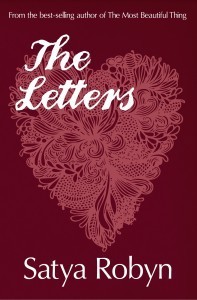 I have a gift for you today. To celebrate the promotion of ‘The Most Beautiful Thing‘ (which is only £1.49) for one day only my novel ‘The Letters‘ is free on kindle – help yourself from and do let your friends know. Enjoy!
I have a gift for you today. To celebrate the promotion of ‘The Most Beautiful Thing‘ (which is only £1.49) for one day only my novel ‘The Letters‘ is free on kindle – help yourself from and do let your friends know. Enjoy!
“Violet Ackerman is lost.
With four children, a divorce and an all-consuming career behind her, she moves to a new house by the sea with no idea of what the future holds – or even if she has a future at all.
Then she starts to receive a series of letters from the past. These letters, dated fifty years before, were written by a young pregnant woman living in a mother-and-baby home. Violet has no idea who is sending her these letters, or what message they are intended to impart.
As Violet tries to solve the mystery of the letters and build a new life for herself, she is forced to confront the mess she has made of her relationships: with her children, her lover and her friends. When all her instincts tell her to run, Violet must try to gather the courage to face her greatest enemy. Herself.”
*
Leaf by Sebastián-Dario
June 4, 2013
Half-remembered poem
The boy was seven or eight, pale, wearing a baseball cap, and he was with his father on the deck of a ferry. The poet was listening in, as poets do. The boy was making a nuisance of himself, desperate for attention, and suddenly the man leant in close to his son and whispered some words into his small soft ear. The boy was crushed like a coke can under his boot. The father walked off with the look of disgust still fading on his face, and the boy was left alone with his humiliation. The poet felt terrible, helpless, dangling from the hook of the boy’s pain. He tried to catch the boy’s eye and gave him a look that said ‘it’s tough being small, isn’t it?’ and ‘what a father, eh?’, wanting to offer him this at least, but instead the boy sneered at him and then spat into the sea.
I think the poem was by C. K. Williams, and I flick through his Collected in search of it, letting my eyes float over all that black and white confusion and hurt and joy. I even try reading the first lines index – ‘sometimes I almost go for hours without crying’, and ‘Once, in Rotterdam, a whore once, in a bar, a sailor’s bar, a hooker bar, opened up her legs’… I can’t find it, and I start to wonder if maybe the poet was actually Sharon Olds, and maybe it was the boy’s mother, not his father, and maybe the boy didn’t spit into the water at all. The only thing I can be sure of after all is the boy’s hurt, as I hold a replica of it deep inside like a needle through my heart.
*
An old prose poem of mine from the ‘new poetry collection’ folder that has languished on my computer for years now…
May 14, 2013
Why give my book away for free? Is it because I’m nice?
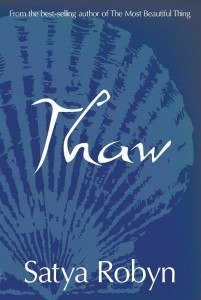 Satya writes:
A post from the archives about giving books away for free, after the re-launch of Thaw.
Satya writes:
A post from the archives about giving books away for free, after the re-launch of Thaw.
One of my friends got in touch last week, outraged that I was giving my new novel The Most Beautiful Thing away for free on Kindle on Tuesday and Wednesday. She enjoyed the book so much and thought it was worth so much that she couldn’t bear the idea.
So am I doing it from the kindness of my heart?
No.
Here’s the deal.
1). I am an author, and I want to make money from my books. We need new carpets.
2). I want to be read by as many people as possible. I know that my character Joe has affected people. He’s moved them to happy & sad tears, and then stayed with them long after they’ve closed the book. My book has changed them. This is why I write.
At the moment, I’ve been graced with seventeen five star reviews on Amazon. But nobody is buying my book. Why should they? They’re not seeing it, because it’s not in the charts or in the shops. They don’t know who I am. Why should they part with their hard earned cash, when they have a list of novels by their favourite authors waiting to be bought (never mind the teetering pile on their bedside table)?
Giving-my-book-away is a part of my current book-selling strategy. If enough people download it, it gets into the Amazon charts where more people who don’t know who I am will see it and download it. Some of those people will tell their friends about the book. Some of them will write me a review. Some of them (like last time I made it free) will even get in touch and offer me a donation. People are nice.
Of course, it might not make a big splash at all. But at the very least my book will have a brand new readership, and some of those readers will care about Joe as much as I do. And that’s good enough for me.

